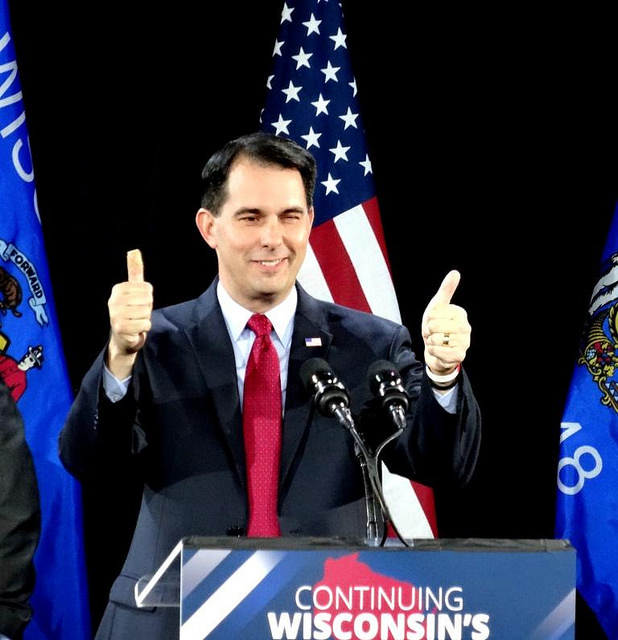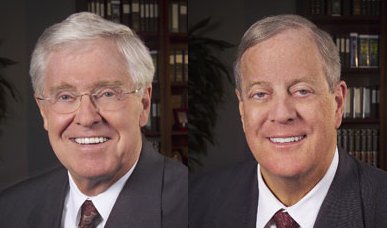The Two Biggest Misconceptions About Freedom in America
By:
July 4. The day we celebrate being free to think, say, or write anything without fear of the Thought Police, or the actual police busting down the door and dragging us off for some political re-education and/or torture and/or death. And considering the misery humans have inflicted on each other over the millennia, and continue to inflict, it is something to treasure. And we treasure the hell out of it.
Every July 4 we get all gooey at the sight of smiling majorettes in sequined bathing suits leading a parade down Main Street. We cheer when they throw a sparkly stick in the air and catch it. We remove our hats and applaud as the veterans march or wheel behind, flashing their dignified salutes. And at the end of the day we commemorate “the rockets red glare, the bombs bursting in air” by blasting the shit out of the sky and inducing heart attacks in any bird within a 5-mile radius.
Given our love for explosions and military pageantry, it’s not surprising that July 4 is the most dangerous holiday of the year. In 2014, the National Safety Council estimated 385 Independence Day deaths and 41,200 injuries, including car crashes, swimming accidents, boating accidents, barbecue burns, and fireworks explosions, with alcohol playing a major factor. There are 20,000 trips to emergency rooms across the country every July 4. Yet, for all our bragging, parading, and blowing ourselves up for freedom, we really don’t understand the concept. In fact, our national dialog on the subject is grounded in two big lies.
Lie Number 1: Freedom = License
Thanks to the Rand Pauls and Paul Ryans of the world, a system of government based on the rights of the individual has morphed into a Ayn Randian sanctification or deification of the individual as some autonomous entity.
The U.S. Constitution begins with “we, the people” not “I, the person.” It’s a political document grounded in the rights of man, and inspired by Athenian democracy, the Magna Carta, the English Bill of Rights, and the Mayflower Compact. Yet, our popular notion of freedom is based on the simplistic notion that we can all just do whatever we want without government interference. Essentially, it’s “you’re not the boss of me.”
But whether it’s spoken by a child to a parent, or by a citizen to a government, the juvenile mindset is the same. It confuses “freedom from,” as in not being subjected to the tyranny of a repressive monarchy or dictatorship, with “freedom to,” as in being free to carry an AR-15 into a Chipotle.
Freedom is a group experience, grounded in the social contract. That’s why we call it “living in a free society.” Declaring everyone free is not the same as declaring life a free-for-all. Speed limits, stops signs, and traffic lights aren’t limits on our freedom to drive as fast as we want. They’re rules for the common good. Freedom is something we experience individually, and share collectively.
The federalism/states' rights argument goes back to the beginning of our democracy. Resistance to a strong fed was a safeguard against it amassing too much power — a hangover from being ruled by a king. However, at times, the government has had to serve as the conscience of the nation and use its power on behalf of what was morally right, or economically necessary, whether that meant sending troops to a Southern university to ensure that black students could attend class, bailing out a flooded city, or a tanking economy.
As with most things in life, it’s about striking a balance between self-interest and social responsibility. Too much Groupthink, you get totalitarianism. Too much individualism, you get "Lord of the Flies." Unfortunately, these distinctions have all but evaporated from the American conversation. Trying to grasp the yin/yang of individual desire and group responsibility seems to create a cognitive dissonance that sends most Americans running for a beer to make the thinking stop. It’s much sexier to strap on your six guns and wade into the public square doing your best Yosemite Sam impression. Free-for-all isn’t liberty. It’s anarchy.
Lie Number 2: Freedom = Laissez Faire Capitalism
The other misconception about our “freedom” was Foxsplained by Bill O’Reilly on Real Time with Bill Maher. During a discussion on the Bush era tax cuts, he proclaimed, “income redistribution isn’t in the Constitution. It wasn’t how the country was set up. This is a capitalistic society.”
Wrong. We don’t live in a capitalistic society. We work in a capitalist system. We live in a democratic society. Not that I’m knocking capitalism. I like capitalism. Abuses aside, it works because it places value on an individual’s drive to work hard and enjoy the benefits of economic success. That’s why communism imploded. You can’t stifle the individual human spirit. When you try, people tend to rebel, and eventually you find yourself having to seize power to keep them in check. You know, for the good of the people. Not exactly the dictatorship of the proletariat. More like the dictatorship of the dictatorship.
On the other hand, absolute power corrupts absolutely. And that includes absolute economic power. Karl Marx wrote during 19th century in reaction to the abuses of capitalism during the Industrial Revolution. If workers were treated fairly under capitalism, communism would have never arisen. Nor would there have been a need for unions. The U.S. labor movement didn’t arise spontaneously, or because workers are just greedy bastards who enjoy screwing management. And management didn’t exactly welcome their formation. From the Pinkertons hired by Henry Ford to bust up strikes, to Reagan firing the air traffic controllers, to Scott Walker’s Koch Brothers-fueled efforts in Wisconsin, the history of union busting is evidence of their necessity.
 WisPolitics.com / Flickr - flickr.com
WisPolitics.com / Flickr - flickr.com
But just as communism fails because it negates the individual, capitalism risks crumbling when it denies our communal experience. The fact is we work for ourselves, and we work for each other. Think of a simple thing you do every day, like driving to work. You feel pretty independent behind the wheel; AC blasting, music cranking, captain of the ship, master of your domain. But consider this: Did you make the car? Design the car? Build the car? Transport it to the dealer? Sell it? Did you drill for the oil and refine it into gasoline? Transport it to the gas station? Open the gas station and run the business? Did you build the roads you’re driving on? Design the system of traffic lights and install them? Do you patrol the streets to make sure no one drives like a maniac or shoots anyone going 45 in the fast lane? Did you launch the satellites that send directions to your GPS? Did you create the music you’re listening to? Brew and sell the coffee you’re drinking? Jump off the roof from the stress of working in the Chinese factory that built the iPhone you’re not supposed to be texting on?
There’s an invisible net of other people’s work in most every moment of our lives. How those individual jobs are rewarded is indicative of our values. The musician who recorded the song on the radio is probably better off than the factory worker who installed the bumpers on your car. Of course, some people might say, “I made my money with my hard work, and I deserve my rewards, so screw everybody else. Why should it matter to me how they live?” And that’s fine. Be a selfish asshole. Just don’t try to fob it off as a legitimate social and political philosophy.

In 1980, David Koch ran for vice president on the Libertarian ticket. At the time, the party platform included: repealing all federal campaign finance laws, abolishing Medicare and Medicaid, deregulating the medical insurance industry, eliminating Social Security, personal and corporate taxation and minimum wage laws, eliminating government ownership, operation, regulation, and subsidy of schools and colleges, as well as getting rid of the Environmental Protection Agency, Department of Energy, Department of Transportation, FAA, FDA, OSHA, the Consumer Product Safety Commission, and any government programs, or relief projects that aid the poor. His American dream. Everyone else’s dystopian nightmare.
Something to ponder this July 4, as we take a time-out from the election noise and pound beers and shoot fireworks off our heads for freedom.
Correction: 7/4 8:45 a.m. PST: A previous version of this story incorrectly identified David Koch as Charles Koch. ATTN: regrets this error.
Correction: 7/4 4:30 p.m. PST: A previous version of this story incorrectly identified the U.S. Constitution as the Declaration of Independence.
Ian Gurvitz is the author of "Welcome to Dumbfuckistan: The Dumbed-Down, Disinformed, Dysfunctional, Disunited States of America."
